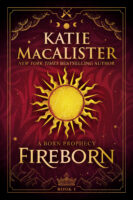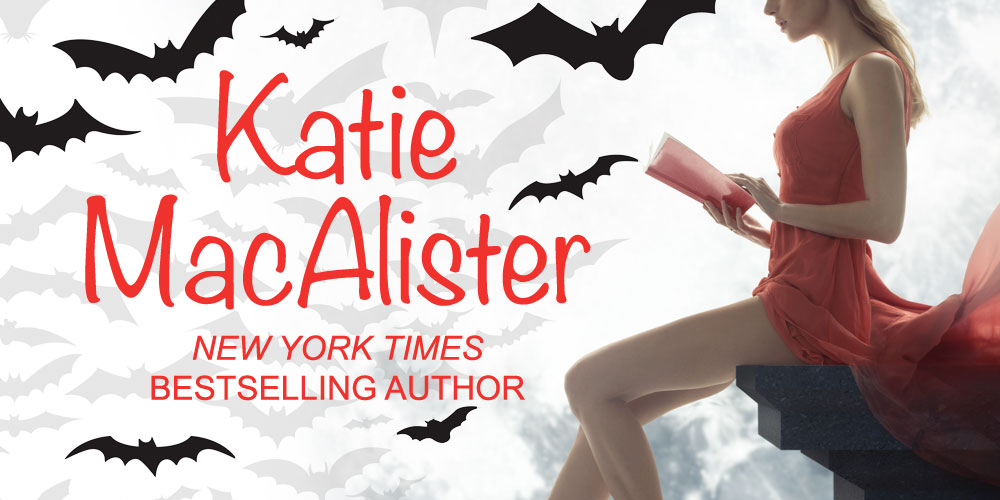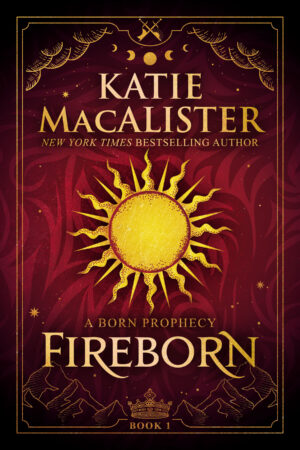PROLOGUE

“I’m not too late, am I?”
The midwife looked up from where she was carefully cleansing and anointing her tools, mindful to treat them with the reverence they deserved. They had saved—and, goddess willing, would continue to save—many a woman’s life.
A tall man strode into the small antechamber, the air that swirled behind him bringing with it the soft scents of the rare night-blooming flowers that grew outside the queen’s chamber. The scent drifted through the room, banishing before it smells normal to such domains, instead providing a sense of relief and refreshment. The midwife breathed deeply for a moment, her mind calming and clearing … until those scents native to the impatient man tickled her nose. Horse, sweat, and leather had their places, but not in a queen’s bedchamber. Not in a birthing environment.
“The babe is born, if that is what you mean,” she answered finally, aware that the man had the decency to wait upon her answer before continuing into the next chamber.
He hesitated. “And Dasa? She does well?”
The midwife unbent a little in her consideration of the man before her. She had judged many a new father on his first words, whether his concern was wholly on his progeny, or if he had a care for the woman who had risked her life to bring a new being into Bellias’s domain. “The queen rests comfortably, my lord. She was in labor for half a day, but once the child wished to be born, it went quickly.”
“Good.” The man reached the door to the queen’s chamber in three strides, but he again paused, his hand on the doorknob. “And the babe?”
She knew what he was asking. “You have a son, my lord.”
“Thank the goddess,” he said, sighing in relief, and without another word entered the queen’s bedchamber.
The midwife sidled up to the door and leaned against it, listening for a moment, but the murmur of voices inside was too unclear to be distinguishable.
“Bellias bless and keep the child,” she murmured to herself as she returned to the task of cleaning her tools. “And may he be the salvation that we need.”
* * *
Israel Langton, lord of the Fireborn, and newly made father, examined the small bundle presented to him by one of the handmaidens. He wasn’t overly impressed by what he saw. “Are you sure that’s a babe?”
“Israel!”
“Have you seen him?” He gestured toward the child. “He looks more like a boiled frog.”
“He does not. He doesn’t look anything like a frog, boiled or otherwise.”
He pulled back a bit of the swaddling. “Definitely has frog blood. And possibly some sort of mutant pig.”
“You are incorrigible!”
Israel smiled to himself and looked over to the mammoth bed where a woman lay draped against a plethora of red and purple cushions, her long black hair washing down over the bedcovers. Her face was pinched and exhausted, but her eyes—silver in color, and right now about as warm as the moon itself—were filled with life.
“How dare you say that about our son? He is perfect in every way.”

Israel took the bundle from the handmaiden and brought it to Dasa, carefully easing himself alongside her. Despite the midwife’s reassurances, the lines of strain around Dasa’s mouth told the tale of just how strenuous she’d fought to birth the baby. “Take a look.”
She looked. “Well … maybe not perfectly perfect.”
“He’s red. And blotchy.”
Dasa fussed with the swaddling blanket, adjusting it minutely, and brushing her fingers against the child’s forehead. “He’s not blotchy. He just has … different colors to his flesh.”
“His head is pointed.”
“Yours would be, too, if you were squeezed out of a womb,” she countered.
He raised his brows. “I know you think I was born of the lord of the underworld, but my mother tells a different story.”
“Then your criticism is null. In time his head will become as round as yours.”
Israel considered his son, now nestled against his mother. “He’s not very attractive, is he? You are lovely, and I’ve been told I wouldn’t cause a maiden to lose her supper upon viewing me, and yet our child is … not like either of us.”
Dasa struggled to speak for a few moments. Israel knew that lies did not come naturally to her, and was amused watching her find judicious words to counter his statement. “He won’t always look this way,” she finally allowed. “You needn’t hold his present appearance against him. He’s been through a lot in the last hour, and one doesn’t look one’s best after a battle.”
“You always do,” he said, shifting his gaze up to her face. “You emerge from even the hardest fight looking as if you could do it all over again.”
She gave a half shrug, but he saw one corner of her mouth curl up in acknowledgment of the compliment. “That’s different. I am a warrior.”
“And he is my son—is that what you’re saying?”
“Now you are reading an insult where one was not intended,” Dasa countered quickly. “I simply said that I am used to battle, whereas our son—Deosin—hasn’t had a chance to learn my ways, yet.”
“Our ways.”
Dasa inclined her head. “Our ways. He will be our salvation.”
Israel was silent for a few minutes, running his fingertip alongside the pink fists of the babe. Deo was asleep, and for a moment, Israel wanted to wake him up. Would his son have the blue or gray eyes of the Starborn, or would he bear the amber eyes of the Fireborn? “Do you believe that, Dasa? In your heart, do you believe it?”
She glanced away from him, and addressed the two handmaidens who lurked in the room, tidying and waiting to be of service to their mistress. “You may leave me. Return in ten minutes.”
The women bowed, shot Israel a curious look, and left silently. Dasa waited for the count of twenty before answering. “We made this child because of the prophecy. Do you now doubt it?”
Deo’s arm twitched. Israel lifted the little fist, and studied it. “It’s so minute, so perfectly formed, this hand. It even has tiny little fingernails. And yet it’s almost impossible to believe that this blotchy, red-faced little frog could be the one person to bring peace to Alba.”

“He had better be,” Dasa said with a touch of acid in her voice. “After what I went through bringing him into this world. Not to mention having to consort with a Fireborn in order to do so.”
Israel was annoyed for a moment, but decided that she had earned the right to make a few digs at his expense. “You aren’t my first choice for a life partner either, my sweet.”
She grimaced at the endearment, as he knew she would. “Then it’s a good thing we are not wedded, isn’t it?”
He leaned close and kissed the tip of her nose. “You may not like me any more than I like you, but that doesn’t mean you didn’t enjoy the making of this babe.”
“Sexual pleasure is hardly a fitting topic of conversation,” she said primly, but the corner of her mouth twitched again. “The future is. We should have Deosin’s future read now, before the night breaks.”
“It can wait. You are tired and need rest, and he is sleeping.”
She shook her head, a familiar flash of stubbornness in her eyes. “It must be done tonight, while the moon is still up.”
“His future has already been foretold—”
“That was before he was born.” She pulled a silk rope hanging alongside the bed. “I have a very good sage. It was she who predicted that your seed would find favor nine months ago. She will cast Deo’s fortune and reassure us that he is the one we have waited for.”
Israel hesitated for a moment before rising and glancing out through an open window. The goddess Bellias in the form of the moon was low on the horizon, just setting about her path across the night sky, a time when all right-thinking Fireborn were tucked up inside beside fires and family. And here he was, far from home, in the land of his enemies. “And if she doesn’t give us that reassurance?”
When he glanced back over his shoulder, Dasa’s gaze was on their son, her expression unreadable. “She will. She has to. My people are tired. Yours are decimated. We can’t go on like this many more generations before Alba is destroyed.”
He said nothing, returning to his examination of the city that lay outside Dasa’s stronghold, and his dark thoughts. A tap at the door interrupted those thoughts, and he turned to watch silently as a surprisingly young woman entered the room, bowed before her queen, and shot Israel a worried look.
“Cast your runes,” Dasa ordered the sage, who bowed again, and knelt before the side of the bed, one hand on the swaddled bundle.
Interested despite himself, Israel watched as the young woman sketched symbols in the air that glowed first pale blue, then turned silver before dissolving into nothing.
“Arcane runes?” he asked Dasa.
Her brows rose slightly. “Are there any other kind?”
“Yes. My seers use bones and leaves.” He allowed a little grimace to twist his face. “They aren’t terribly accurate. They told me that our child was destined for a life of betrayal and sorrow.”
Dasa drew the child closer to her in a protective move that relieved some of Israel’s worry about leaving his son in the care of the woman against whom he’d fought his entire life. “Your sages are rubbish. Ciandra has never failed me.”
“Never, my lady,” the woman said, still drawing one-handed symbols in the air. As the last one faded, she shook her head, cast a quick glance over to Israel, and began the process again.
Dasa shifted uncomfortably in the bed.

“Do you have need of one of your women?” Israel asked, wishing to help her, but knowing she would reject any such offer.
“Not yet. I want Deo’s future read first; then we will sleep.” A little frown creased her black brows when she watched the sage repeating her symbols. “You are slower than normal, Ciandra.”
“I know, my lady, and I apologize.” She slid another glance toward Israel. “The runes … I’m having some trouble making them understand that it is the child they are to predict for, not … not him.”
Dasa’s lips tightened. “I have just been praising you. Do not now make me look a fool for doing so.”
“No, my lady.” The sage continued to draw symbols in the air, her face tight with concentration, and her arcanist’s robes rustling softly with the increased movement of her arm.
Israel turned back to the window, about to resume his contemplation, when the sage gave an annoyed click of her tongue.
“It is not—they won’t—I’m sorry, my lady, but the runes are not cooperating.”
Dasa propped herself up on one arm. “What is it they are saying?”
The sage lowered her head and stared at the floor, her voice as soft as the night air. “They say a time of great trial is coming.”
“What sort of trial?” Israel asked.
The sage struggled for a moment, then spoke one word. “Invasion.”
“From whom?” Dasa demanded, her fingers digging into the silken bedcovers. Her gaze found his, and he fought against the need to flinch from the suspicion in it. “From where?”
“I know not, my lady.”
“When will the invasion happen?” Israel demanded to know.
The sage made a gesture of frustration. “I … the runes do not give a date. They simply foretell an invasion.”
Israel held Dasa’s gaze, his face a mask, but inside, suspicion fought with anger. Would the sage lie in his presence in order to hide plans Dasa had to destroy the Fireborn? But no, that made no sense. Why would Dasa want him deceived when she’d just given birth to the one who would, at last, bring the two warring races of Alba together?
“What do they say about my son?” Dasa asked, her eyes narrowed slits of silver when they turned to the young woman. “What do they say about the ending of the Third Age?”
The sage’s shoulders quivered for a moment; then she looked up, her face as pale as snow. “They say nothing, my lady. There is no mention of the salvation to bring upon us the Fourth Age. It is as if …” She hesitated, swallowing hard. “It is as if he does not exist.”
Israel wanted to snatch up the child and remove him from this place, this homeland of his enemies, and, without thinking, had moved toward the bed, but he caught the expression in Dasa’s eyes at that moment.
She was the greatest warrior he’d ever known—goddess knew how many times he’d fought her, a sword in one hand, and a staff in the other—and yet he saw a flicker of fear in her eyes.

The knowledge stuck him in the belly almost as if it had been a physical blow: she was afraid for their child. Would she really arrange this elaborate plot if she held such fear for Deo’s future? Even as he watched, she pulled him into the crook of her arm, protecting the swaddled form.
“The runes are wrong,” she said at last, her voice as stark as the pain in Israel’s gut.
“My lady, I wish they were, but—”
“They are wrong!” Dasa said loudly, and with a jerk of her head dismissed the sage. She scurried out, a strangled sob following the sound of the door closing behind her.
Israel stood helpless, unsure of what action he should take. They had prayed to the goddesses for so long, Fireborn and Starborn alike, and at long last, oracles of both races received identical messages: the joining of bloodlines would end the desolation of the Third Age, and bring on the peace and prosperity of the Fourth. But now … he shook his head. “What will you do?” he asked at last.
Dasa lifted her chin, her gaze defiant. “We will do what we always do. We will prepare. We will defend what is ours. And we will survive.”
“And the invaders?”
Her lip curled in scorn. “The runes are wrong. But if they come, they will soon learn the error of their ways.”
The meaning of her words was quite clear to Israel. He squared his shoulders, reminding himself that although he had drawn up the terms of the accord with the Starborn, it was not to be put into place until their child was recognized by both races, and the Third Age ended.
Now, with the words of one slim girl, that fragile hope for peace was gone.
“So be it,” he said, and, with one final glance at the child, left the bedchamber.








